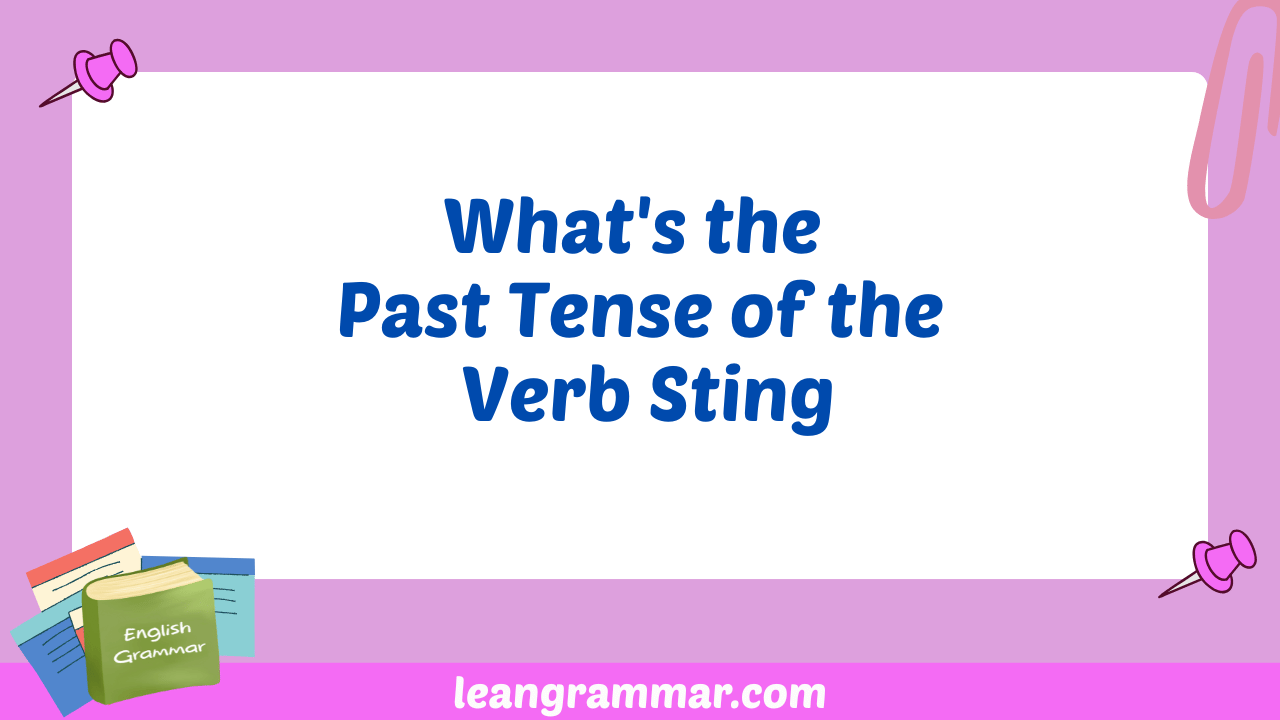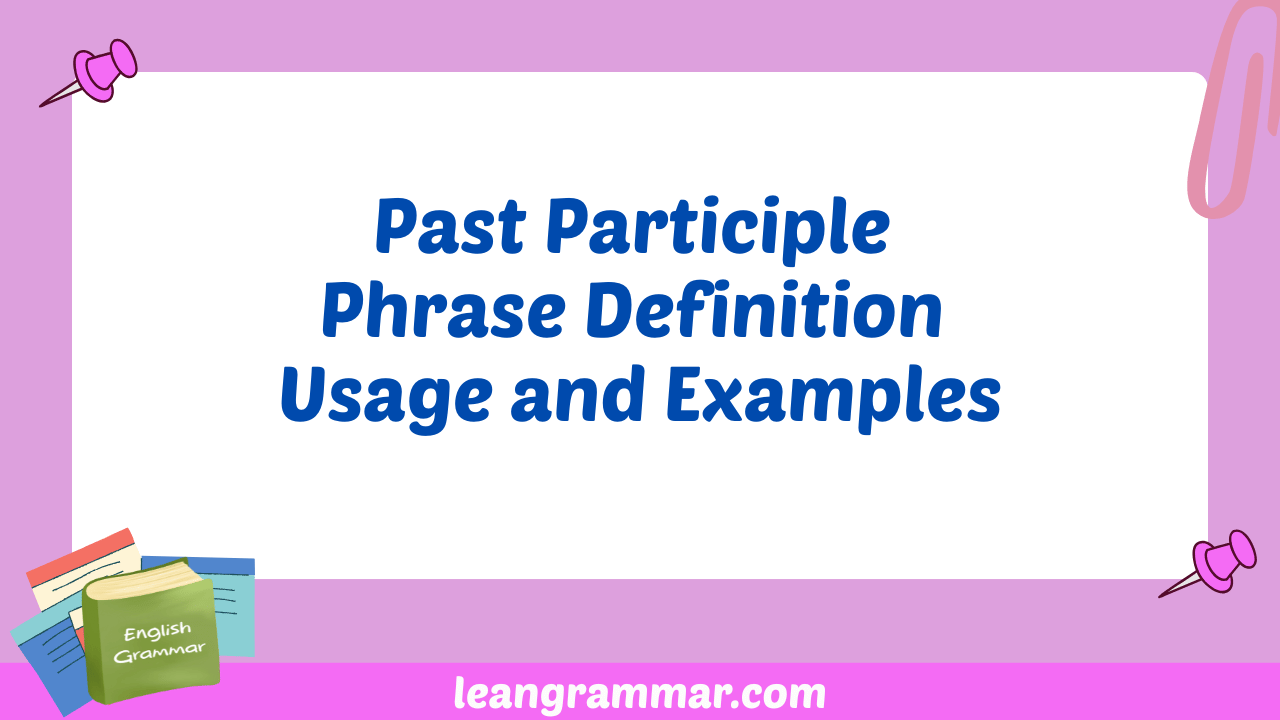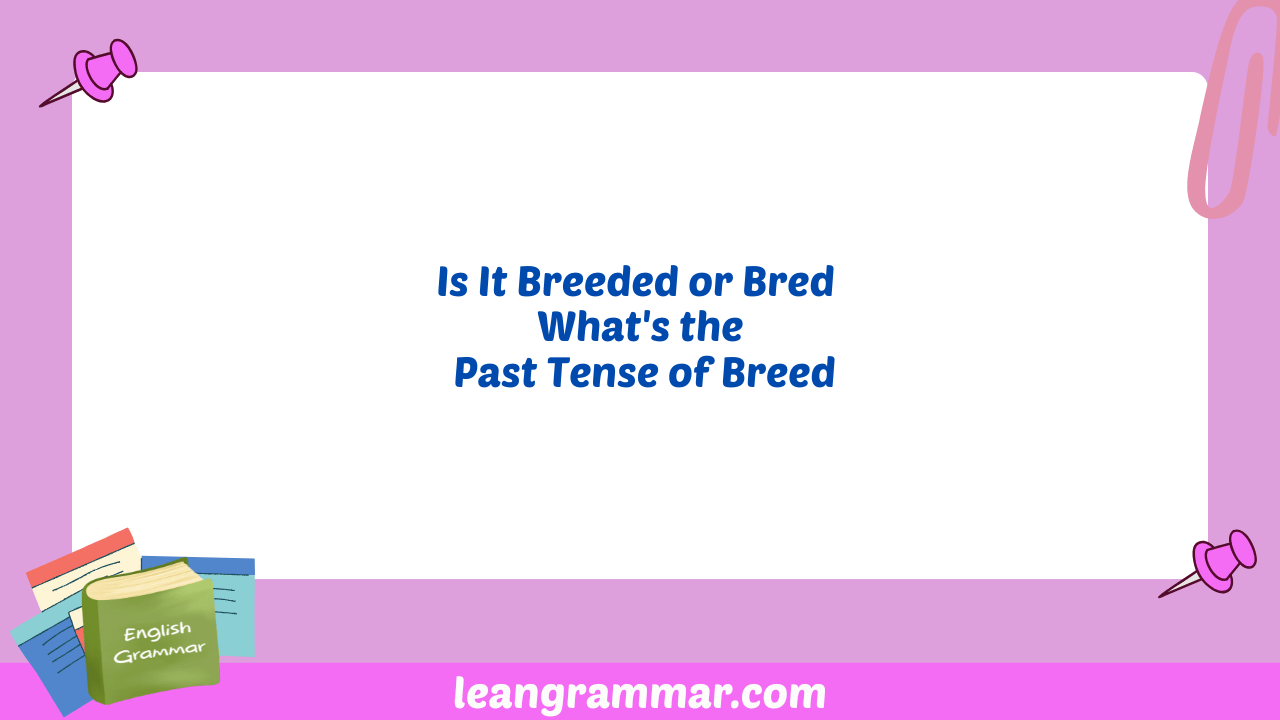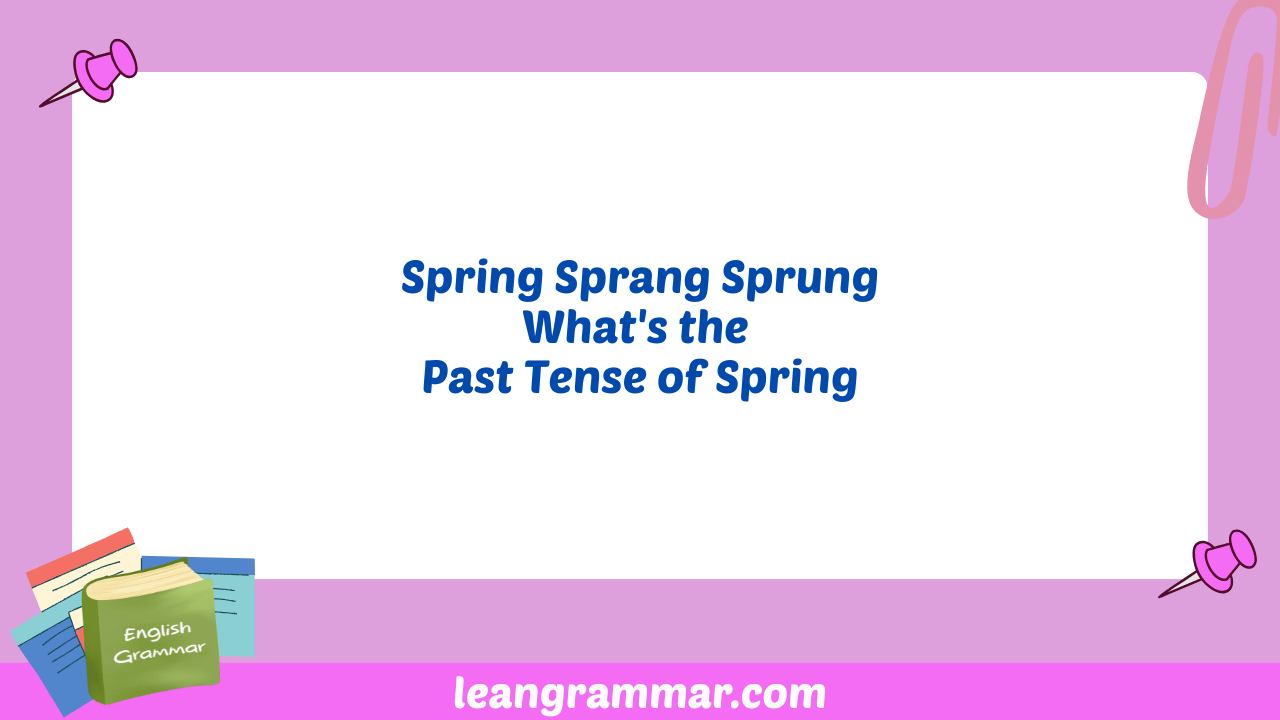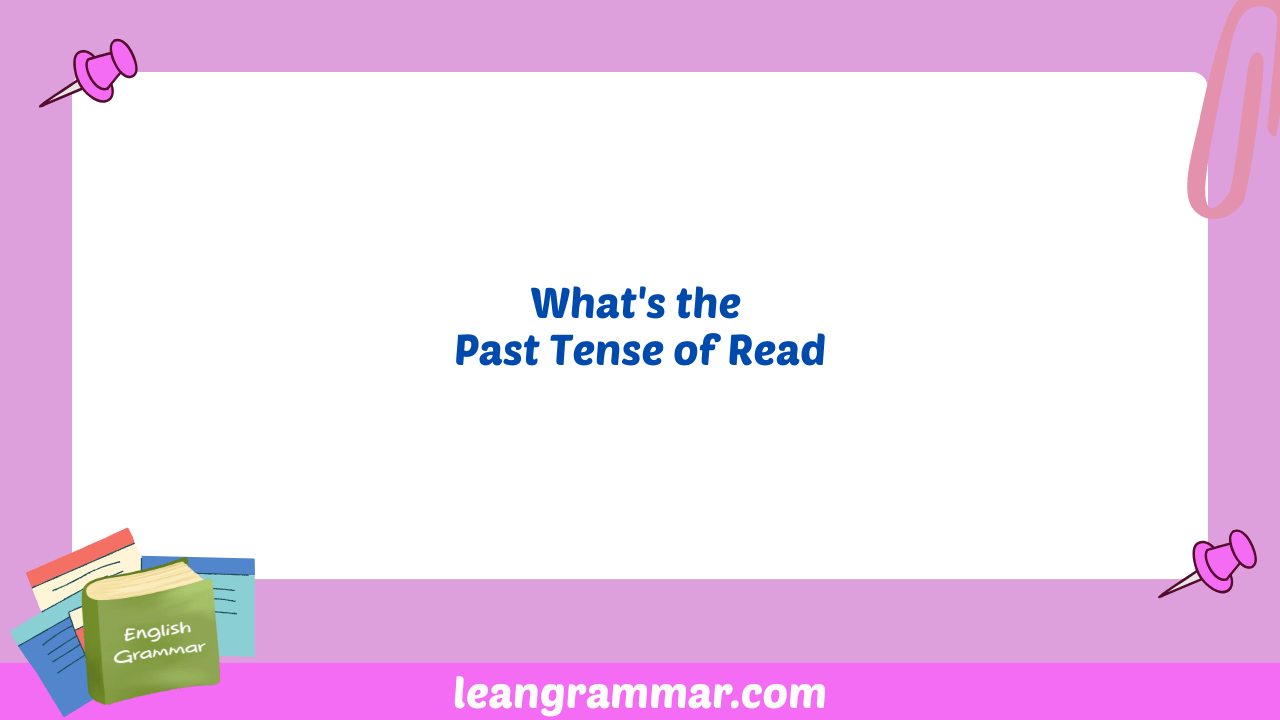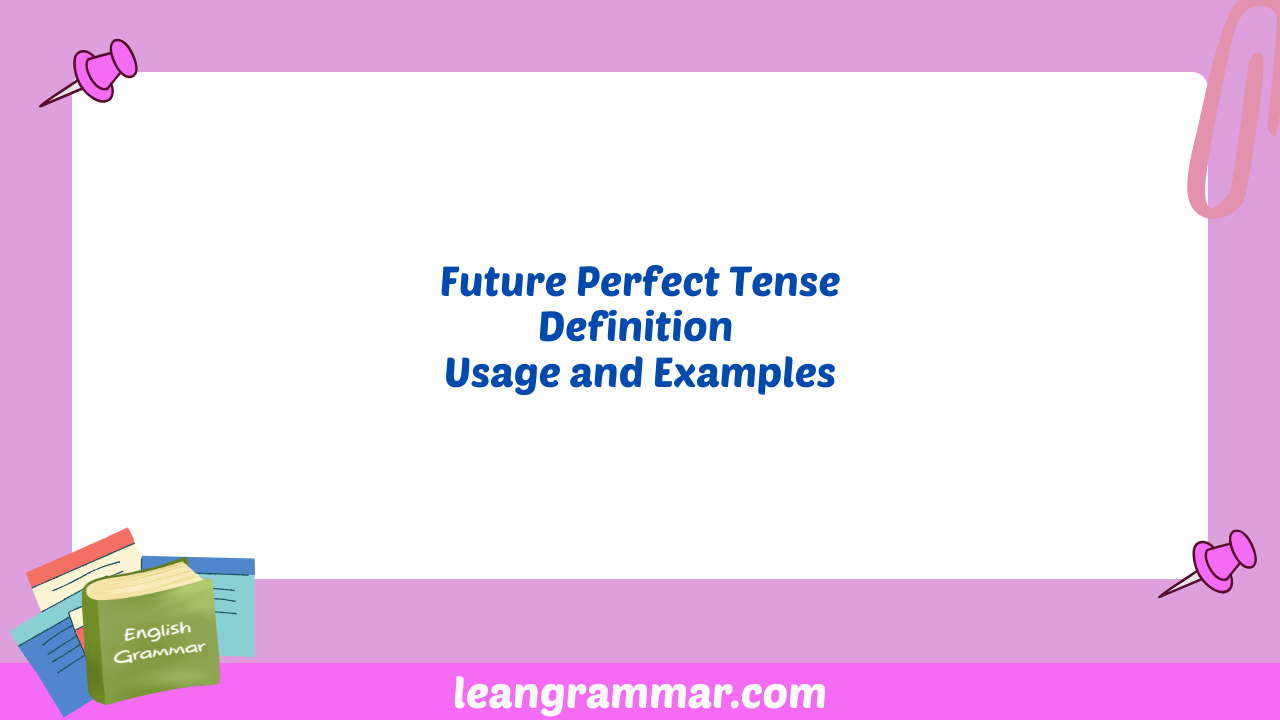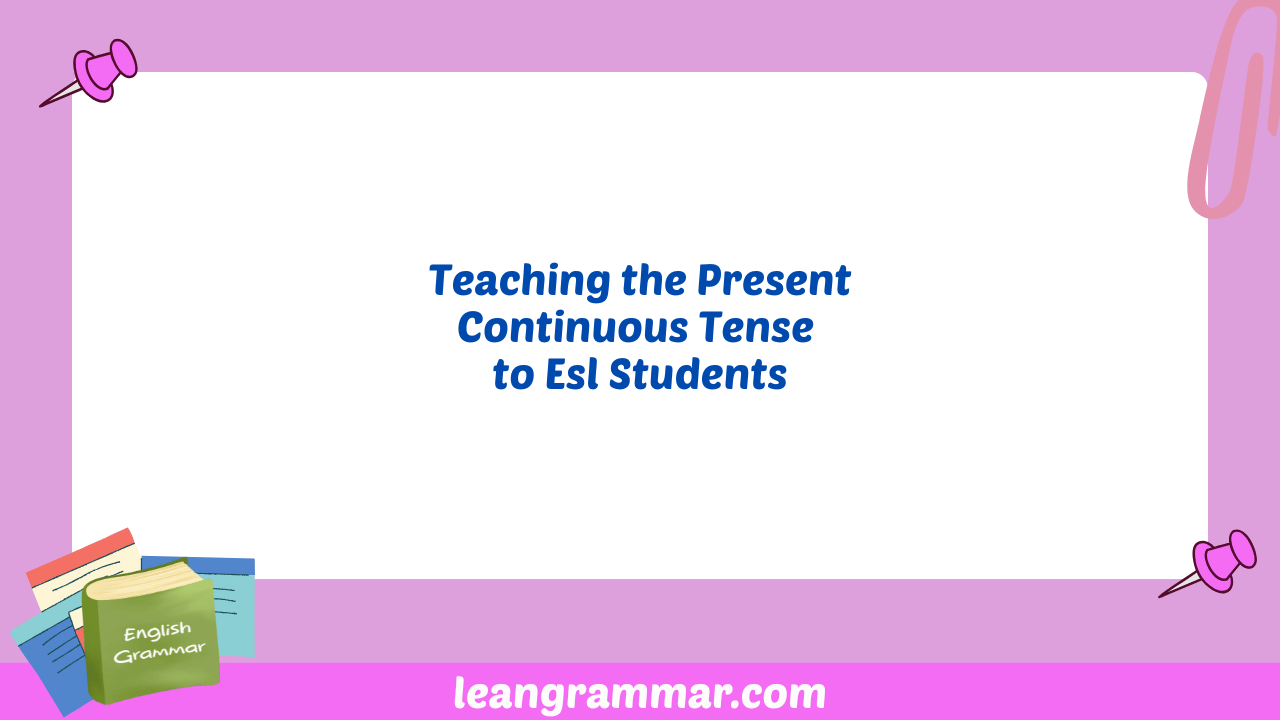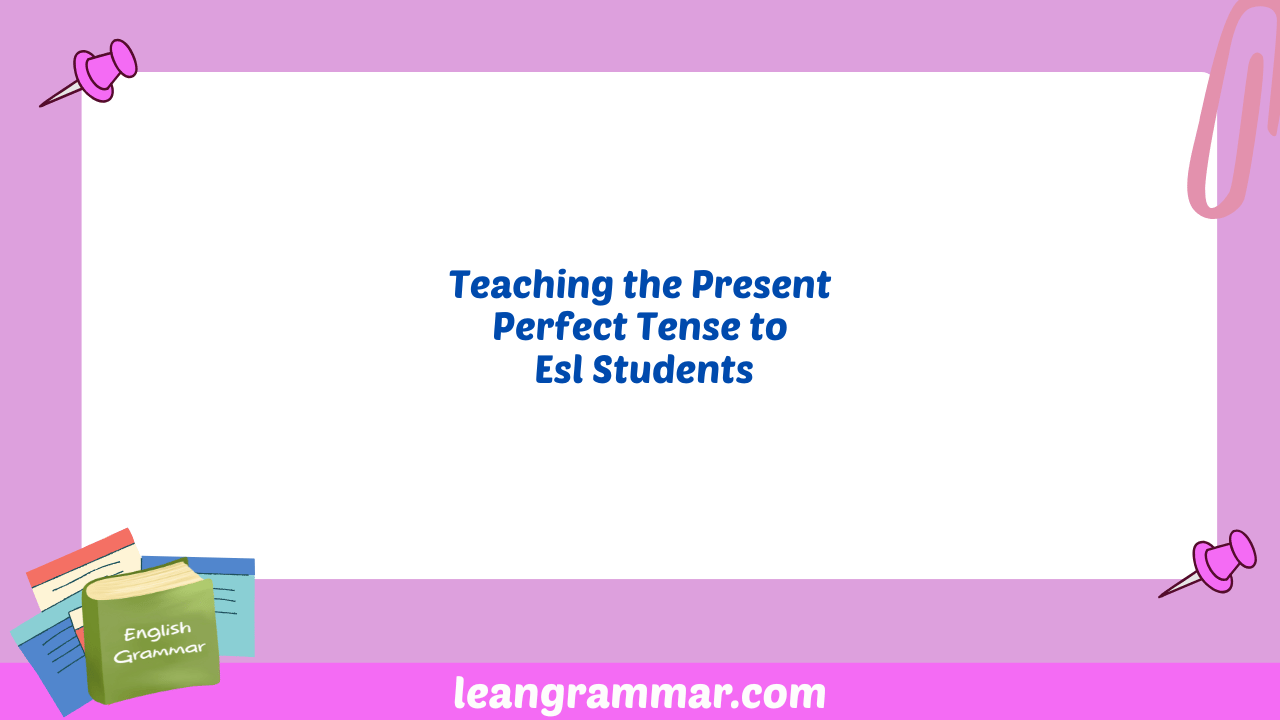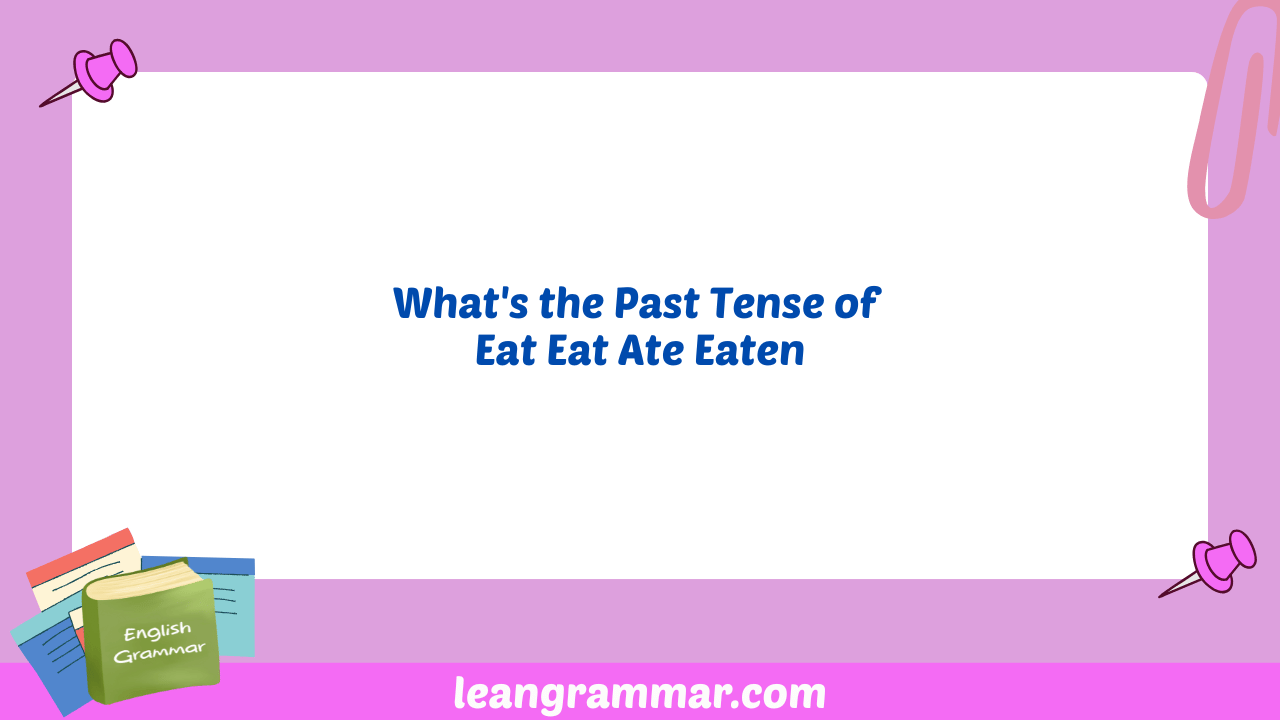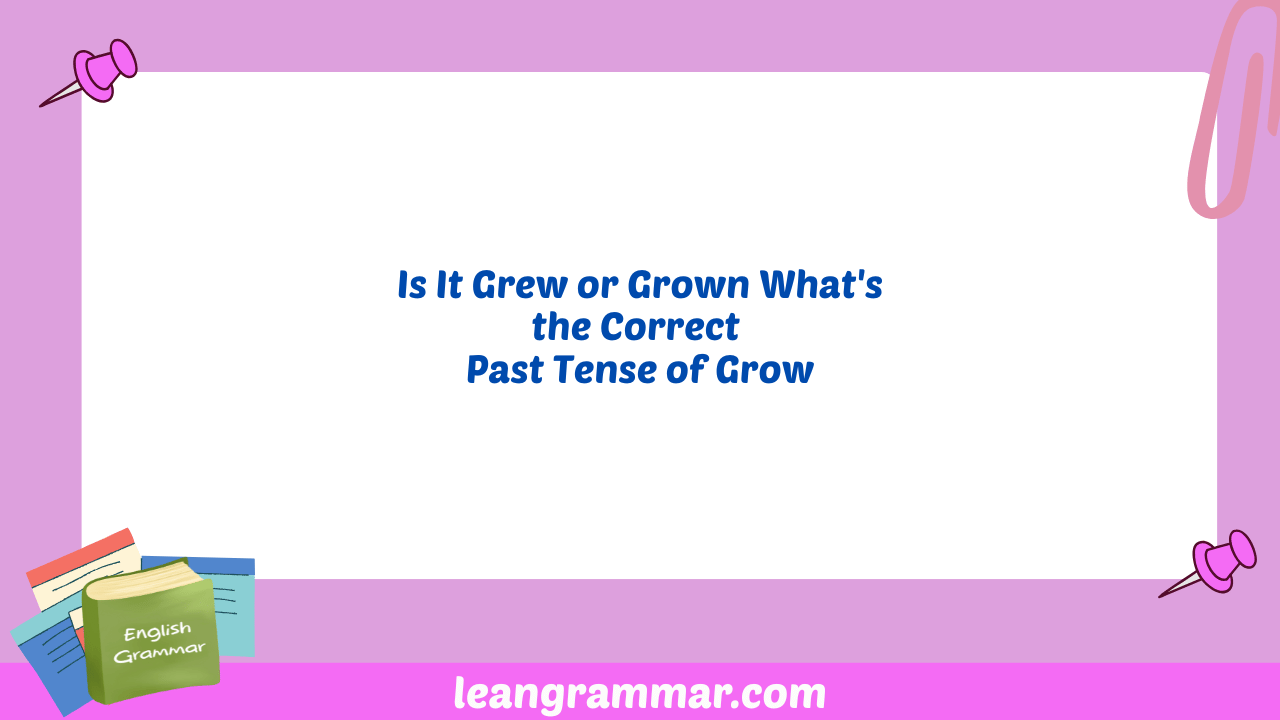Sting’s Past Tense: A Comprehensive Guide to Verb Conjugation
Understanding the past tense of irregular verbs like “sting” is crucial for accurate and fluent English communication. The verb “sting,” meaning to pierce or wound with a sharp-pointed structure or to cause sharp mental or emotional pain, has irregular past tense and past participle forms that require specific attention. This article will delve into the … Read more
